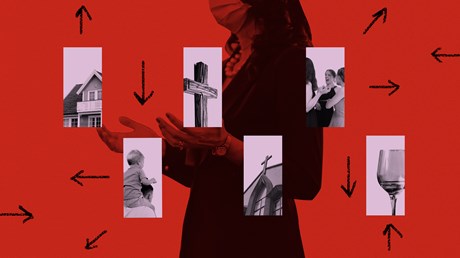This Lent to forget will make us remember where our first loves reside.

Depending on your perspective, Lenten fasts can seem trivial. What’s the point, exactly, of giving up dessert or alcohol for six weeks? (Is your real goal to lose weight?) Forgoing Facebook or Twitter for Lent may seem worthwhile—but if you return after Easter, what is the lasting impact? Besides, aren’t these fasts supposed to be spiritual disciplines? How do they honor God?
Proponents of the liturgical year point out that there are other ways to mark the Lenten season. Christians can “add in” disciplines as easily as they can take them out. The traditional Lenten disciplines of prayer, fasting, and almsgiving rightly orient our relationship to God (in prayer), ourselves (through fasting), and our neighbor (by serving the poor). While such disciplines should hardly be reserved solely for Lent, the season’s self-denial invites a period of focused self-examination, a chance to, in some small ways, restructure our daily routines.
Normally, Lenten disciplines come with a time stamp. We count down the approximately 40 days from Ash Wednesday to Easter knowing that, surely, we can grit our teeth and bear going without caffeine or Instagram for six weeks.
The pandemic, however, feels like a never-ending penitential season, with forced fasting, imposed self-denial, and plenty of unanswered prayers. We’ve had to give up meeting together as believers in person, we’ve given up the easy fellowship of a lunch with friends, or coffee with coworkers, or date-night dinners out. Many have had to tighten their belts because of a job loss. At-risk individuals have forgone almost all physical contact in order to stay safe. We’ve waited in line to get into stores and gone online for everything ...
from Christianity Today Magazine
via


.gif)

.gif)
.gif)
